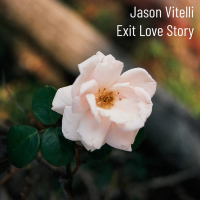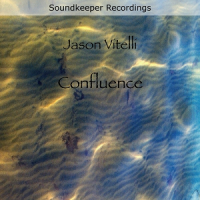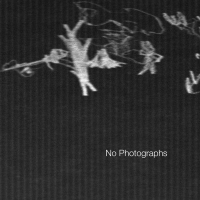Home » Jazz Musicians » Jason Vitelli
Jason Vitelli
With three literate singer-songwriter releases to his credit, it might seem paradoxical that Brooklyn-based Jason Vitelli’s newest project presents his music without lyrics. But as he notes, 1. Ambient Corridors is an inaugural instrumental collection that signifies a return to his roots.
In 2003, after his composition and scoring studies, Jason created music for student films, documentaries, and short films, all while working in tandem with an accomplished film composer. Much of the music on this project is selected from this previous period, refined and given new life, as he explains. “A return to form; re-establishing work I’d done years ago and building upon it.”
While his “turn of the century” electronic palette might have been sparer than what the current software libraries offer, his imagination and compositional aptitude -- revealed in the orchestration, original sampling, and sound design – were finely tuned. Across a span of 12 tracks, acoustic instruments such as cello, viola, piano, electric guitar, and varied woodwinds – alongside Jason’s electronic manipulation of found objects instill an impressionistic aural journey. “I am drawn to the combination of synthetic and real elements,” he says. “Interaction between human and programmed performances can create something entirely new.”
His titles are often visual and auditory afterthoughts, informed as imagery with the sensory overlap of synesthesia. “Chukchi Sea,” named for an Arctic ocean, conjures frozen landscapes. “It wasn’t what I was thinking of when I wrote it,” Jason observes. “Yet the blueness of the piano chiming made me think of a wide open expanse and breathing in cold air. These tactile elements revealed themselves through listening.”
“Lost and Found,” is structured similar to a Bach prelude and fugue. “It was inspired by Baroque period music, and one could imagine it being played in a cathedral on a pipe organ,” explains Jason. “The melody from the beginning and the melody from the second half intertwine at the end – the lost finally find each other.” Among the tracks, “Exit Love Story,” employing the moody interaction of a synthesized jazz trio, shares a pre-ordained title with an indie film of the same name.
Jason’s career-building musical credits include gigs at historic New York listening rooms, stints as a sideman for jazz combos, and subway busking. His debut release, No Photographs, and the subsequent collection Confluence, were followed by his third release Head Above Tide, lauded by the Nashville Music Guide as “…a musical phenomena, one that has opened a new world of possibilities in a never ending universe of new worlds, all in one haunting album.”
Read moreTags
Take Five with Multi-Instrumentalist Jason Vitelli

by AAJ Staff
Meet Jason Vitelli We now find Brooklyn-based musician Jason Vitelli standing at a crossroads, pivoting from being a prolific songwriter into an eclectic composer. Though he has previously written for video, his upcoming 4th album, 1. Ambient Corridors (2024), stands out as an inaugural collection of captivating works. He curates an opus of twelve pieces, weaving together acoustic instrumentation, such as cello, piano, and clarinet, with synthetic elements that include electronic programming and sampling. Each track, from the expansive orchestral ...
Continue ReadingJason Vitelli: Head Above Tide

by Paul Naser
jny: New York-based artist Jason Vitelli should be highly commended for his efforts at blending songwriting with interesting musical forms and arrangements (think Steely Dan), a sound that is too often avoided. Rooted in his experience as a composer for film, Vitelli's music often has a theatrical sound. His baritone voice set against the sparse production recalls a musical theater production on more than one occasion. His third full-length release, Head Above Tide, explores many styles. From reggae ...
Continue ReadingIt’s interesting that Vitelli notes composer Charles Ives as an influence, because [Head Above Tide] truly belongs to the New York tradition of pushing conventional boundaries with angular modernism. It’s a wide-ranging history, but it’s the same lineage the gave birth to the Talking Heads and the No-Wave movement. While it’s difficult to say where exactly Vitelli fits into all of this, it’s tempting to argue that his music owes more to 20th century classical composition than any pop music.



























